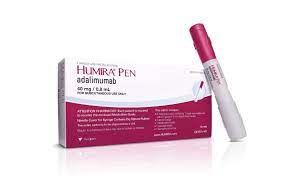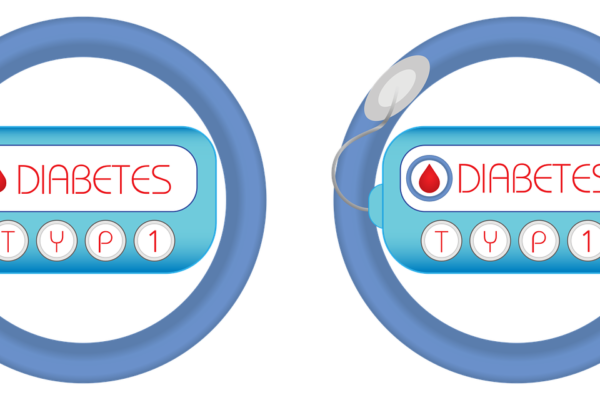Respiratory Syncytial Virus (RSV) is a common and highly contagious virus that infects the respiratory tract, primarily affecting the lungs and airways. It is a significant cause of respiratory infections, particularly in infants, young children, and the elderly. RSV infections are prevalent during the fall, winter, and early spring seasons.
RSV is typically transmitted through coming into touch with the virus directly, such as when droplets from someone else’s cough or sneeze come into contact with your eyes, nose, or mouth. Another way to contract HPV is to contact something with the virus on it, such a doorknob, and then touch your face without washing your hands.
The symptoms of RSV can range from mild cold-like symptoms to more severe respiratory illnesses, such as bronchiolitis and pneumonia. Common symptoms include:
- Runny or stuffy nose
- Coughing
- Sneezing
- Fever
- Wheezing
- Difficulty breathing
In most healthy individuals, RSV infections are self-limiting and do not require specific medical treatment. Supportive care, such as maintaining hydration and using fever-reducing medications, is generally sufficient to manage the symptoms.
However, RSV can be more severe in certain populations, including:
- Infants and young children, especially premature babies
- Older adults
- People with weakened immune systems or chronic health conditions
In severe cases, hospitalization may be necessary, and respiratory support, such as supplemental oxygen, might be required.
Prevention is crucial to reduce the spread of RSV, especially in high-risk populations. Some preventive measures include:
- Frequent handwashing with soap and water
- Avoiding close contact with sick individuals
- Keeping infants away from people with cold-like symptoms
- Practicing good respiratory hygiene, such as covering the mouth and nose while coughing or sneezing
- Efforts to reduce RSV transmission in healthcare settings are also essential.
Respiratory Syncytial Virus (RSV) Vaccines
RSV vaccine research and development started in the 1960s with an ineffective formalin-inactivated RSV (FI-RSV) vaccine that caused significant lung inflammation in RSV-naive newborns, which was deadly in two cases. This reaction to a real RSV infection is known as increased respiratory illness (ERD) associated with vaccination. For many years, the creation of substitute RSV vaccinations was hampered by concerns regarding the FI-RSV vaccine.
Arexvy
Arexvy developed by GlaxoSmithKline Biologicals (GSK) becomes the world’s first RSV vaccine has been approved by the US FDA, EU and Canada for use in people above 60 years of age. The vaccine is said to reduce risk of developing severe disease by 92.1%.
Arexvy can be given along with the inactivated seasonal influenza vaccine. Individuals with thrombocytopenia or any other clotting condition should be cautious while administering arexvy intramuscularly since bleeding could result. Pregnant and lactating women are advised not to take Arexvy.
A placebo-controlled Phase III clinical investigation (conducted in Europe, North America, Asia, and the Southern Hemisphere) in adults 60 years of age formed the basis for the safety profile described. In this study, more than 12,000 persons got one dosage of Arexvy and more than 12,000 received a placebo.
The most frequently reported adverse effects in research participants 60 years of age and older were injection site discomfort (61%), fatigue (34%), myalgia (29%), headache (28%), and arthralgia (18%). These unfavourable reactions often had a mild to moderate intensity and subsided a few days after the vaccine.
The majority of other negative effects were rare and uniformly reported throughout the study groups.
By combining the RSV-specific antigen, F-protein in prefusion conformation, with an adjuvant system (AS01E), Arexvy is designed to enhance antigen-specific cellular immune response and neutralizing antibodies response in individuals with pre-existing immunity against RSV. The adjuvant AS01E facilitates the recruitment and activation of antigen presenting cells carrying vaccine-derived antigens in the draining lymph node, which in turn leads to the generation of RSVPreF3-specific CD4+ T cells.
RSV Vaccine Global Market
RSV, or respiratory syncytial virus, is a typical respiratory virus that affects both the upper and lower respiratory tracts and causes mild, cold-like symptoms. Even while the majority of people recover in a week or two from RSV, it can still be potentially dangerous, especially to young children and the elderly. RSV affects over 57,000 kids under the age of five in the US every year, according to the Cleveland Clinic. Despite years of RSV research and extensive global research efforts, there is still a sizable unmet medical need. In the past, it has been challenging to demonstrate a promising safety profile or efficacy for potential therapies.
The last ten years have seen a considerable advancement in the development of the RSV vaccine. Between 2024 and 2028, the RSV vaccine and antibody market is anticipated to expand at a CAGR of 38.90%.
By 2024, certain vaccines and antibodies are anticipated to be commercially available after completing their final stage readouts. The projections include the years 2024 to 2028. The global RSV vaccine and antibody market is anticipated to be valued US$2.56 billion in 2024 and US$9.53 billion in 2028, taking into account both the modalities (antibody and vaccine) targeting all three important age groups.
With a 67.5% market share in 2024, the vaccine sector is predicted to dominate the market for respiratory syncytial virus vaccine and antibodies. This is because several vaccine candidates are nearing the end of their clinical studies and are expected to be released soon. When a vulnerable child is surrounded by immunised individuals, creating a localised herd immunity effect, adult immunisation can also help prevent RSV infection in children.
There are two end-user-based segments: Adult and Maternal and Paediatric. With a 59.08% market share in 2024, the adult segment is predicted to rule the respiratory syncytial virus vaccine and antibody market. Many large manufacturers have started adult vaccination and antibody trials as a result of the increased frequency of RSV in older and immunocompromised individuals, which is considered as a critical factor in providing the adult segment a dominant share.
The US, Europe, and rest of the world make up the three regions that make up the entire world market for respiratory syncytial virus vaccine and antibodies. The US is expected to control the market in 2024 by holding close to half of the worldwide market share. The increased prevalence of RSV is the main reason driving the market for respiratory syncytial virus vaccination and antibodies in the US.
The US respiratory syncytial virus vaccine and antibody market will also benefit in the coming years from the presence of significant players and top-notch healthcare facilities in the area. In the upcoming years, there are many potential in the European market for respiratory syncytial virus vaccines and antibodies. The development of the market in Europe is anticipated to be fueled by a number of factors, including enhanced healthcare infrastructure, shifting demographics, an active government drive to track RSV seasons, and a well-established hospital reimbursement system.
The growing RSV prevalence highlighting the higher unmet demand for RSV vaccinations is projected to be the primary driver of the global respiratory syncytial virus vaccine and antibody market. Additionally, factors like quick urbanisation, a growing geriatric population, rising healthcare costs, an increase in RSV cases in children, and supportive government policies have consistently aided in the development of vaccines and antibodies over the past few years, driving the market’s expansion.
A few obstacles, such as the high cost of vaccine development and unequal access to vaccinations, are hindering the market’s growth. The fact that only one RSV treatment product, Synagis, has been approved in the last 20 years demonstrates the significant challenges faced by pharmaceutical companies in developing RSV treatments.
Market Players
Prominent pharmaceutical companies like Pfizer, Johnson & Johnson, and GlaxoSmithKline are considered as key players in RSV market.
RSV has long been a main focus for vaccine researchers. Despite numerous high-profile trial failures for businesses over the years, vaccinations are finally moving through late-stage testing and may be released in 2023
According to Geoffrey Porges, a $10.5 billion market might emerge over the following ten years as businesses compete.
The analysts predicts that vaccine industry major GSK would take home $2.9 billion of that total income by 2030, followed by Pfizer with $2.1 billion, J&J with $1.7 billion, and Sanofi with $1.2 billion.
Porges predicts that by 2030, adults would account for 72% of the RSV market, while infants will account for 18% of sales and maternal immunisation will account for 10%.
The FDA also gave Arexvy its approval in May, making it the first RSV vaccine that can be used in the US. Despite these historic approvals, GSK’s hegemony in the underserved RSV vaccine market is in jeopardy. Pfizer, which is vying with GSK for market share with its own RSV vaccine, Abrysvo, which received FDA approval only a few weeks after Arexvy, is likely to pose a serious threat.
As a result, GSK is unlikely to significantly benefit from the first-mover advantage in terms of market share in the US. As Pfizer’s Abrysvo has not yet been given EC clearance, Arexvy may yet have a first-mover advantage in the EU however.
Beyfortus by AstraZeneca and mRNA-1345 by Moderna are also anticipated to stake a claim in the market. Moderna is “very confident” in what it claims is the “best-in-class profile” of its product even though it is aware that its vaccination will launch far behind formidable competitors, according to chief commercial officer Arpa Garay.
The medication is anticipated to go on sale in 2024, exceed Abrysvo in sales, and reach $2.4 billion in 2029.
According to a statement from Jasper Morley, Drugs Intelligence Analyst at GlobalData, “the four therapies will account for 90% of total forecast sales in 2029 and are the main drivers of the significant increase in the global RSV market.” EU approval is still pending for Abrysvo. Sales of $1.7 billion are anticipated, placing it third behind Moderna’s mRNA-1345.
There will be fierce competition, and the possibility of new therapeutic approvals, such as vaccinations against certain geographic and maternal conditions, will give therapies a competitive advantage and a favourable position in the market.
Conclusion
The global market for Respiratory Syncytial Virus vaccine and antibodies is anticipated to grow significantly between 2024 and 2028. Rising RSV prevalence, fast urbanisation, an ageing population, rising healthcare costs, greater unmet demand, a rise in RSV cases in children, and supportive government policies are all factors that contribute to the expansion. However, other issues including expensive vaccine development and unequal access to vaccines are also limiting market expansion.
References:
https://www.irishexaminer.com/news/arid-41196793.html
https://www.researchandmarkets.com/reports/5579066/global-respiratory-syncytial-virus-rsv-vaccine
https://telanganatoday.com/report-predicts-rsv-vaccine-market-to-exceed-9-billion-by-2029
https://www.cdc.gov/vaccines/hcp/vis/vis-statements/rsv.html
https://www.ema.europa.eu/en/documents/product-information/arexvy-epar-product-information_en.pdf






Leave a Reply